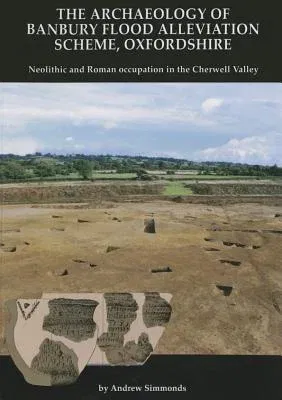This volume presents the results of investigations undertaken by Oxford
Archaeology between 2003 and 2011 in advance of construction of the
Banbury Flood Alleviation Scheme, Oxfordshire. The main element of these
investigations was an excavation at the site of a borrow pit for clay to
be used in constructing the flood defences. Geophysical surveys of two
other areas that revealed dense concentrations of buried archaeological
remains not subsequently affected by the scheme are also reported.
The excavation uncovered a multi-period landscape containing a
regionally significant Neolithic occupation site, as well as later
features. The Neolithic remains comprised 35 pits that produced large
assemblages of flint and pottery, mainly Peterborough Ware of middle
Neolithic date (associated with radiocarbon dates of c 3350-2650 BC). A
single substantial but enigmatic middle Bronze Age ditch contained few
finds, but these included a radius from an aurochs, one of the latest
examples of this species in Britain.
Late pre-Roman Iron Age occupation was represented by an oval
double-ditched enclosure which, following a brief hiatus, was succeeded
toward the end of the 1st century AD by a more extensive low-status
farmstead. The settlement was redeveloped during the 2nd century before
finally being abandoned in the early-mid 3rd century. Artefactual and
palaeoenvironmental assemblages, as well as the spatial arrangement of
the settlement, provided evidence regarding the economy, status and
social organisation of the community. The volume includes a
consideration of the results of the project in the context of Iron Age
and Roman settlement of the Cherwell Valley.

